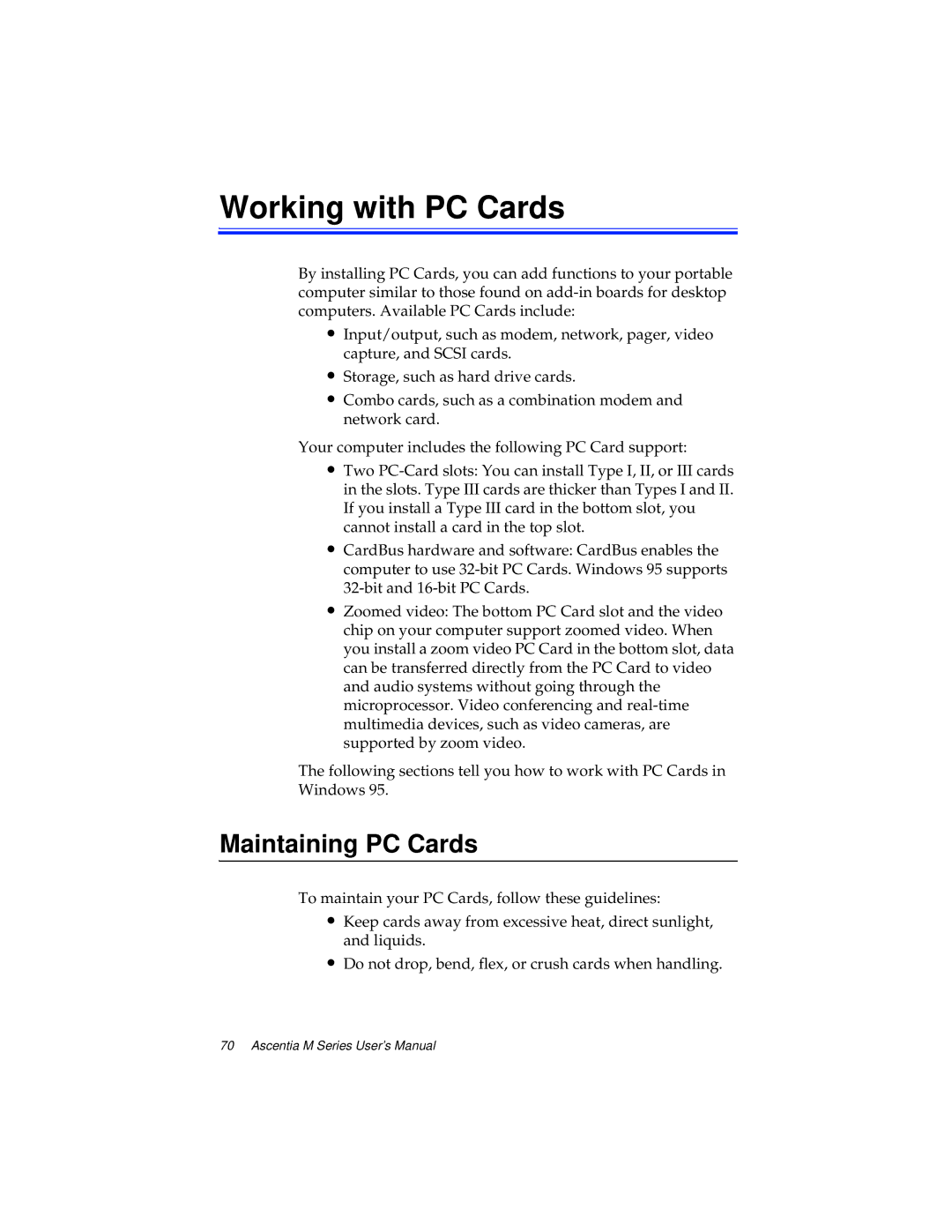
Working with PC Cards
By installing PC Cards, you can add functions to your portable computer similar to those found on
∙Input/output, such as modem, network, pager, video capture, and SCSI cards.
∙Storage, such as hard drive cards.
∙Combo cards, such as a combination modem and network card.
Your computer includes the following PC Card support:
∙Two
∙CardBus hardware and software: CardBus enables the computer to use
∙Zoomed video: The bottom PC Card slot and the video chip on your computer support zoomed video. When you install a zoom video PC Card in the bottom slot, data can be transferred directly from the PC Card to video and audio systems without going through the microprocessor. Video conferencing and
The following sections tell you how to work with PC Cards in Windows 95.
Maintaining PC Cards
To maintain your PC Cards, follow these guidelines:
∙Keep cards away from excessive heat, direct sunlight, and liquids.
∙Do not drop, bend, flex, or crush cards when handling.
